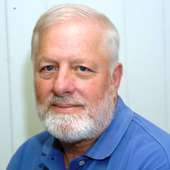Reflections: To Tell the Truth
Sunday, February 11, 2018

(Originally posted May 13, 2013)
Back in the 1950s and '60s there were several popular game shows revolving around telling the truth or telling a lie. "To Tell the Truth" with Bud Cullyer and the panel of Tom Poston, Peggy Cass, Orson Bean and Kitty Carlisle was my favorite, but we also watched "I've Got a Secret" and "What's My Line."
On "To Tell The Truth," three guests -- one honest and two liars -- would face the prying questions of the panel as they (and the audience) tried to figure out who was "telling the truth."
These shows fell by the wayside, no doubt done in by the ratings; but the same game is played out daily in our courtrooms as judges and juries try to figure out who is telling the truth and who is not.
In the early 1980s Judge John R. Bailey of Portageville was serving as the associate circuit judge in New Madrid County. One of his duties two days a week was to hear preliminary hearings on the criminal docket.
The burden of proof for the state at these hearings is pretty light; the state only needed to show that a crime was committed and that there is "probable cause" to believe the defendant committed it. Usually the hearing lasted only 10 or 15 minutes and involved a couple of witnesses. If, at the end of the hearing, the court found "probable cause," the defendant was bound over to circuit court where he was formally charged and proceed to jury trial, if necessary.
One morning, a case for a preliminary hearing was called up before Judge Bailey. The defendant was charged with burglary and stealing, specifically that he broke into a business on Russell Street in New Madrid and emptied its vending machines of their coins.
The police had investigated the crime. They interviewed the owner who told them about the kicked-in back door and the amount of money taken from the machines. Another witness had told them he saw the defendant near the back door with a large sack that looked like it was filled with coins. When the defendant was arrested, his pants pockets were filled with coins.
The hearing convened and the prosecutor called his first witness: the owner. After his testimony, the arresting officer was called. Of course, the coins in the defendant's pockets were only circumstantial evidence -- not enough to bind the defendant over. The case hung on the testimony of the third witness, the eye witness.
That witness had been sitting in the gallery listening to the testimony. The defendant was seated at the table with his lawyer. The prosecutor called the witness. He was a young man, about the same age as the defendant, and they obviously knew each other -- perhaps, even friends.
The witness stepped forward and stood before Judge Bailey who instructed him, "Raise your right hand and be sworn." The judge has also raised his right hand. "Do you swear to tell the truth and nothing but the truth so help you God?"
There was a pause. Usually, the witness at this point simply says, "I do."
Silence.
The witness looked back at Judge Bailey, then turned and longingly looked at the defendant; then he looked back at the judge and asked, "About what?"
"Well, about anything he (pointing to the prosecutor) asks you about," responded Judge Bailey.
The witness turned his head and looked at the prosecutor, then he turned and looked at the sheriff who was standing close by, then he turned and looked again at the defendant. The defendant was giving him the eye; everyone could see it. Then he turned back and looked directly at Judge Bailey. They both still had their right hands raised.
"Well?" asked Bailey.
The witness swallowed hard and weakly said, "I do."
To his credit, he repeated the story he told the police the night of the crime and the defendant was bound over.
After the hearing, when only the prosecutor, defense attorney, and sheriff remained in the courtroom, Judge Bailey could not contain himself over the humor of the event.
"'About what?' Why he knew darn good and well why he was here. 'About what?'" The judge laughed about it the rest of the morning. You could hear him back in his office, "About what?" then he burst out laughing again
Judge Bailey also was a fan of "To Tell the Truth."


